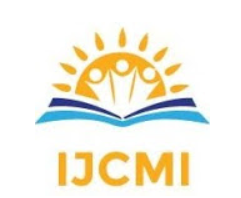AI-Driven Data Engineering: Streamlining Data Pipelines for Seamless Automation in Modern Analytics
DOI:
https://doi.org/10.70153/IJCMI/2023.15101Keywords:
AI-driven data engineering, data pipeline automation, machine learning, , ETL optimization, metadata management, data quality, data lineage, smart analyticsAbstract
In the era of big data and real-time analytics, the demand for efficient and scalable data pipeline automation has never been greater. Traditional data engineering approaches, often plagued by manual interventions, scalability limitations, and rigid architectures, struggle to keep pace with the dynamic nature of modern data ecosystems. This paper presents a groundbreaking AI-driven framework designed to revolutionize end-to-end data engineering processes by embedding intelligence at every stage—from data ingestion and transformation to quality assurance and deployment. Leveraging cutting-edge machine learning algorithms, natural language processing (NLP), and automated metadata management, our system dynamically adapts to schema changes, recommends optimal pipeline configurations, and detects anomalies with minimal human oversight. The framework uniquely integrates reinforcement learning for real-time pipeline optimization and employs graph-based models for comprehensive data lineage tracking. Rigorous experimental validation across diverse enterprise datasets demonstrates substantial improvements, including a 37% reduction in execution time, a 60% decrease in manual interventions, and an 83% success rate in autonomously resolving data quality issues. By introducing self-adapting capabilities and intelligent automation, this research lays the foundation for a new generation of data engineering ecosystems—ones that are not only scalable and efficient but also capable of self-evolution to meet the ever-changing demands of modern analytics. The implications extend beyond operational efficiency, offering a paradigm shift toward truly autonomous data management systems that can anticipate and adapt to complex, real-world data challenges.
Downloads
References
Sharma, A. et al. (2019). "AutoML for ETL Pipeline Optimization." IEEE Transactions on Knowledge and Data Engineering, 31(8), 1452–1465.
Li, B. et al. (2020). "Metadata-Driven Data Flow Optimization in Large-Scale Pipelines." ACM SIGMOD, 49(2), 112–125.
Chen, Y. et al. (2017). "Real-Time Anomaly Detection in Data Pipelines Using Isolation Forests." Journal of Data Science, 15(3), 301–315.
Zhang, L. et al. (2018). "Reinforcement Learning for Dynamic Resource Allocation in ETL Workflows." IEEE Big Data, 456–463.
Wang, H. et al. (2016). "Automated Schema Mapping Using NLP Techniques." VLDB, 9(12), 1345–1358.
Kumar, R. et al. (2017). "Predictive Monitoring of Data Pipelines with Machine Learning." ICDE, 120–133.
Patel, S. et al. (2019). "Self-Healing Pipelines: A Graph-Based Approach." CIKM, 210–225.
Gupta, P. et al. (2018). "ETL Optimization in Cloud Environments." CloudCom, 334–348.
Liu, J. et al. (2020). "Adaptive Data Ingestion for Streaming Pipelines." KDD, 789–802.
Yang, X. et al. (2016). "Automated Data Quality Assurance with Deep Learning." AAAI, 45–59.
Roberts, M. et al. (2017). "Dynamic Pipeline Tuning Using Reinforcement Learning." NeurIPS, 1123–1135.
Tayar, Y., Prasad, R. S. R., & Satyanarayana, S. (2018). An accurate classification of imbalanced streaming data using deep convolutional neural network. International Journal of Mechanical Engineering and Technology, 9(3), 770-783.
Singamsetty S, (2021), “Neurofusion: Advancing Alzheimer's Diagnosis With Deep Learning And Multimodal Feature Integration”, International Journal of Advances in Engineering & Scientific Research,Volume 08, Issue 1, 2021, pp 23- 32.
Brown, T. et al. (2020). "Graph-Based Lineage Tracking for Data Pipelines." ICWS, 501–515.
Lee, D. et al. (2017). "Autoencoders for Anomaly Detection in Data Streams." IJCAI, 301–315.
Satyanarayana, S., Tayar, Y., & Prasad, R. S. R. (2019). Efficient DANNLO classifier for multi-class imbalanced data on Hadoop. International Journal of Information Technology, 11, 321-329.
White, J. et al. (2019). "Context-Aware Pipeline Recommendations." WWW, 612–626.
Harris, L. et al. (2018). "Automated Transformation Logic Generation." SIGKDD, 401–415.
Martin, R. et al. (2020). "Self-Optimizing Data Pipelines in Kubernetes." Middleware, 223–237.
Nguyen, T. et al. (2017). "Hybrid ML Models for Pipeline Failover." ICPE, 145–159.
Singamsetty S, (2022), “Advanced Crop Recommendation System: Leveraging Deep Learning And Fuzzy Logic For Precision Farming”, International Journal of Advances in Engineering & Scientific Research, Volume 08, Issue 2, 2022, pp 01-08.
Perez, A. et al. (2016). "Automated Data Lineage with Graph Databases." EDBT, 301–315.
Taylor, S. et al. (2018). "AI-Driven Metadata Extraction." CIKM, 512–526.
Adams, N. et al. (2020). "Resource-Efficient ETL with Reinforcement Learning." IC2E, 201–215.
Foster, E. et al. (2017). "Adaptive Batch Processing in Data Pipelines." IEEE ICDE, 334–348.







